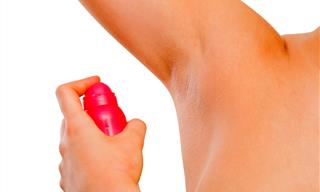What is myrrh?
Myrrh can be used both as resin and essential oil. It is derived from a tree botanically related to the frankincense tree, which is known to be able to grow and prosper in inclement conditions. The resin is harvested through a calculated process of cutting into the tree’s trunk in intervals of 15 days. When the tree's injured, it releases the sap which dries and hardens into a resin.
Etymologically, the word "myrrh" came from the same word in Arabic, meaning “bitter.“ Myrrh essential oil is thicker and more viscous than the average essential oil, making it highly moisturizing.
As it was mentioned in the Bible, you can infer that it has been used in traditional medicine for millennia. It has religious and spiritual properties. Myrrh has been used to clear the air and the mind, and in practical traditional medicine, it was used for treating fevers, inflamed cuts, and wounds, as well as an astringent to stop bleeding and an embalming agent.
Antioxidant and anti-cancer properties
Many plants can be described as having antioxidant properties because they generate compounds that protect them from oxidative stress in nature. Myrrh is a powerful antioxidant, a property that is enhanced in the presence of frankincense. A recent study found that burning the two together as incense reduces airborne material counts by 68%.
Several new studies have even found anticancer properties in myrrh. It was found effective against several types of gynecological cancers, as well as liver, prostate, breast, and skin cancer.
Anti-fungal and anti-bacterial qualities
Myrrh is not only an antibacterial, but it also stimulates the immune system to produce more white blood cells - the body’s natural bacteria killers. Thanks to this property, it can also be used to treat oral infections (such as gingivitis) and functions as an antimicrobial additive to mouthwash or toothpaste. It has been found in several studies to reduce inflammation, kill parasites and fungus and reduce pain by interacting with opioid receptors in the brain.
You can harness myrrh’s antifungal properties for the treatment of mild cases of athlete’s foot, bad breath, ringworm, and staph infections.
Skin health
Myrrh supports the fast healing of wounds. It can be applied topically, diluted in a carrier oil, as an ingredient in an herbal homemade paste, or in a bath or a soak to help heal even the most tender wounds, such as postpartum vaginal tears. It will also help soothe chapped or cracked skin and nails. Use it as a cuticle oil for brittle, splitting nails.
Practical tips for home use:
Here are quick tips and recipes for applying myrrh in your homestead:
1. Mold killer: there are many recipes for natural mold cleaners based on baking soda, vinegar, or lemon. You can add myrrh essential oil for its antifungal properties.
2. Gingivitis remedy: add several drops of oil to 2 ounces of water or coconut oil and swish in the mouth for one minute.
3. Cold compress for swelling: dilute myrrh in carrier oil (jojoba oil, grape seed oil, coconut oil) and use it as a cold compress for pain and swelling.
4. Inhalation: use it in an electronic diffuser or just add it to boiling water and inhale. This helps a congested upper respiratory system and a troubled mind.
5. Digestive tea: to aid digestion, add 2 drops to your tea. Make sure you use essential oil of the highest quality and drink it sporadically to avoid an upset stomach.
6. Thyroid relief: massage 3 drops as a complementary treatment for hypothyroidism.
A final word on side effects
Unlike frankincense, which is considered to be one of the safest essential oils, there are some things to keep in mind when using myrrh.
⁃ Pregnant women should avoid myrrh, as it may enhance contractions.
⁃ Myrrh may lower and influence blood glucose, and therefore, it is not recommended for people with diabetes.
⁃ Myrrh may interact with diabetes medication as well as anticoagulants. People on these medications should avoid myrrh.
Sources: 1, 2.
 Go to BabaMail
Go to BabaMail





























